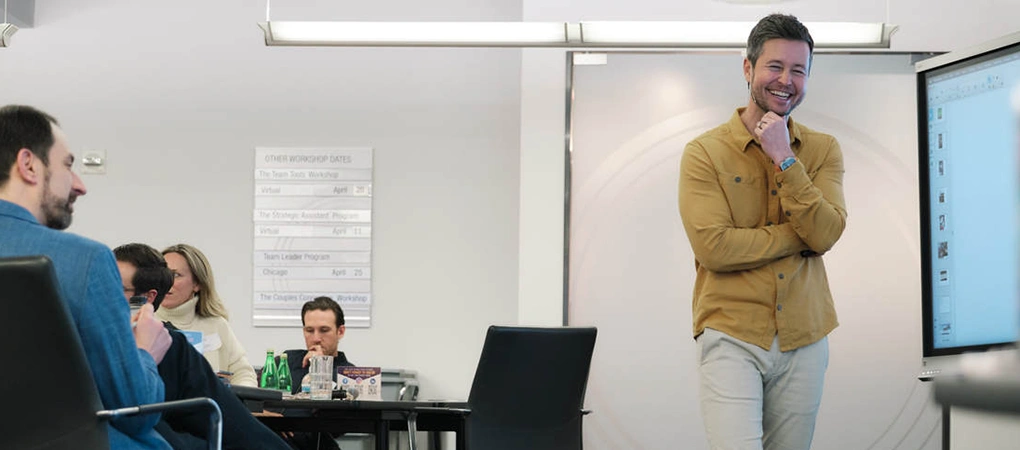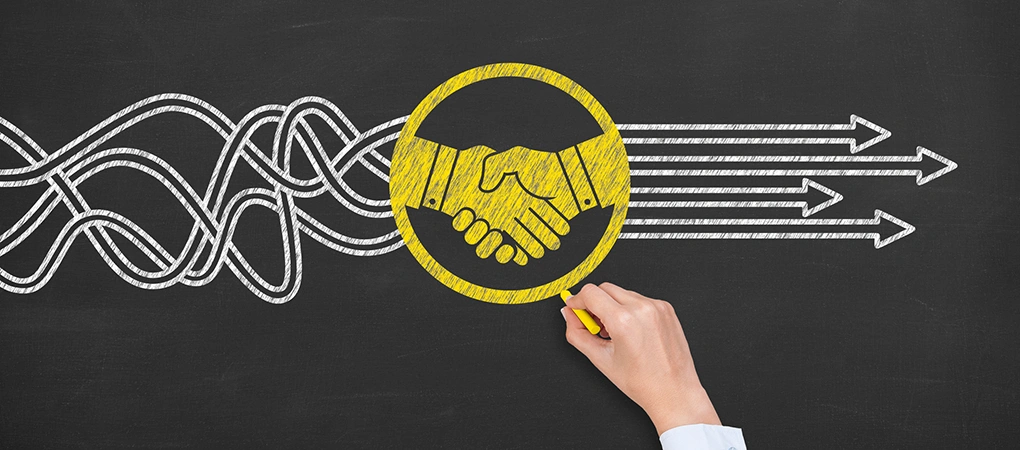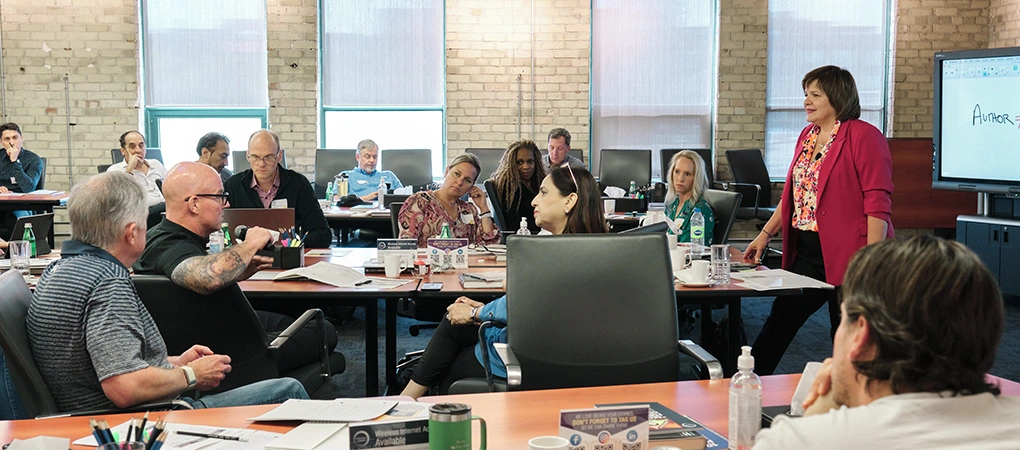Why Working Too Much Is About Quantity, Not Quality
Dan Sullivan

Listen to the podcast below or subscribe to the Multiplier Mindset Podcast on iTunes.
Why Working Too Much Is About Quantity, Not Quality
My father was a hard-working, admirable, honorable man, but he was a distant man, not very easy to talk to or get close to. It was most likely a reflection of his upbringing as one of nine children in a family that was fairly remote and impersonal.
One morning, my mother phoned to tell me that my father had had a nervous breakdown in the middle of the night. He would have been in his early sixties at the time.
This experience had a huge impact on our whole family and provided me with an important lesson about the possibility in life for personal transformation, especially in terms of working too much (quantity) and missing out on a satisfying and rewarding (quality) life.
A revelation.
As the story goes, my oldest sister was going to drive my dad to a doctor’s appointment at the famous Cleveland Clinic. It turned out that they had the time wrong and were two hours early, so my sister suggested they spend an hour or so at the Cleveland Museum of Art, which was in the area.
This was the first time my father had ever been in an art gallery, and my sister, not knowing how much he’d enjoy it, gave him the option to have a look around a few of the gallery rooms nearby while she ventured a bit further.
When she returned, she found my father sitting on a bench, sobbing. You have to understand that we had never even seen my father shed a tear, so this was a new and alarming experience. She sat down, put her arm around him, and asked him what was wrong.
He told her that he’d been working day and night his whole working life, and right here in Cleveland, there were all these beautiful works of art that he didn’t even know existed. Of course, my sister was caught off balance because they’d never had a conversation like this before.
On the way home after the clinic, he was very quiet, and when my sister got him home, he said he was tired and went straight to bed.
A breakdown and a transformation.
The next morning, my mother called my sister to tell her that she’d had to call an ambulance during the night because Dad had woken up and started shouting and acting erratically. He was taken to a psychiatric facility and was there for about six weeks. He’d had a complete nervous breakdown.
After the first three weeks, we were told that he would never be the same again. But around the fifth week, he called to say that he was “over it” and that we could come and take him home. And from the moment we got him home to the day he died 20 years later, he was the warmest and most affectionate person you could imagine. He was suddenly interested in talking about experiences and what he had learned, and he took great interest in other people. It was as if he was one person when he walked into that art gallery, and a completely different person after his breakdown and stay in the hospital.
I’ve often talked about what an extraordinarily strong person my father was physically, but now I could see his mental and emotional strength. You have to have a very strong sense of yourself to go through that type of rapid transformation in your sixties.
He essentially became a multi-dimensional person who was easy to connect with, even on an emotional level, which wasn’t possible before. Going forward, I had great conversations with him about his history, how he grew up, the hard times, the good times, and so on.
A life lesson I still call on today.
I have great faith in people’s ability to transform themselves. You just have to leave them a lot of room to grow. There are reasons why they are the way they are, but if those reasons are no longer useful to them, they can and will change to a way of being that is a vast improvement to the way they were operating.
That was certainly the case with my father.
He actually made the bulk of his money after he had his nervous breakdown. Once he transformed his mindset, he changed from quantity of work (no more working too much!) to quality of work, and he was rewarded for the quality of work he was doing.
Different stages of entrepreneurship require a different focus.
In my work with entrepreneurs at Strategic Coach, this quality vs. quantity lesson has served me well. As business owners, at various stages of our lives, we have to have a different focus to establish a foundation for our freedom as entrepreneurs. This idea resonates with everyone.
[bctt tweet=”“Don’t use up your life on ‘activity,’ but on the most intelligent and profitable activities.””]
The strategies we’ve created for The Strategic Coach Program are designed specifically for entrepreneurs, so we don’t use up our whole lives on activity, but on the most intelligent and profitable activities — the right activities with the right people in the right situations at the right time.
That’s not quantity of life; that’s quality of life.
[embedyt] https://www.youtube.com/watch?v=beR28Dk0zuA[/embedyt]
[contentblock id=egtp-ebook]





